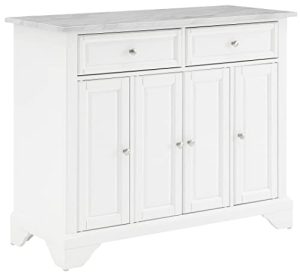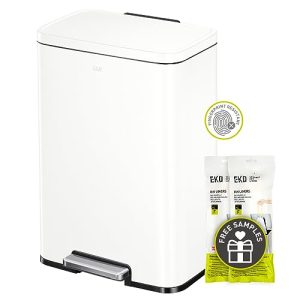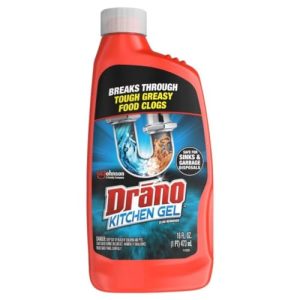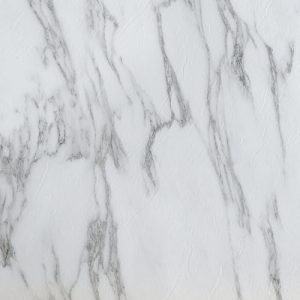Are your kitchen towels looking dull, stained, or carrying stubborn odors? You might think washing them is enough, but sometimes regular cleaning just doesn’t cut it.
Boiling your kitchen towels is a simple, effective way to deep-clean and refresh them like new. In this guide, you’ll discover exactly how to boil your kitchen towels safely and efficiently, so they’re spotless, germ-free, and ready for your next cooking adventure.
Keep reading to unlock this easy secret that can save you time, money, and keep your kitchen truly clean.
Why Boil Kitchen Towels
Boiling kitchen towels is a simple way to keep them very clean. Heat and water work together to remove germs and stains deeply. This method helps towels last longer and stay fresh. It is especially useful for towels used often in cooking and cleaning.
Benefits Of Deep Cleaning
- Kills bacteria and germs hiding in fabric fibers.
- Removes tough stains and odors more effectively.
- Prevents the spread of harmful microbes in the kitchen.
- Makes towels feel softer and fresher after each boil.
- Extends the life of towels by keeping them clean.
When To Boil Towels
- After heavy use with raw meat or grease spills.
- When towels develop a bad smell that washing alone can’t fix.
- Regularly, to maintain hygiene in busy kitchens.
- After illness, to kill any lingering germs.
- If towels look dull or have stubborn stains.
Materials Needed
Boiling kitchen towels requires a few basic materials to ensure effective cleaning. Preparing the right items before you start saves time and helps achieve the best results. Gather everything you need to make the process smooth and efficient.
Choosing The Right Towels
Select towels made from natural fibers like cotton or linen. These materials withstand high temperatures and repeated boiling. Avoid synthetic fabrics as they may melt or degrade. Thick towels absorb more water and dirt, making them ideal for deep cleaning.
Essential Cleaning Supplies
- Large pot or kettle for boiling water
- Water source, preferably hot tap water
- White vinegar or baking soda to remove odors and stains
- Gloves to protect your hands from hot water
- Tongs or a slotted spoon for safe towel removal
Preparing Towels For Boiling
Separate kitchen towels by color to avoid stains. Remove any loose dirt or debris before boiling. Use a clean pot and enough water to fully cover the towels.
Preparing towels for boiling is a simple yet crucial step in ensuring that your kitchen towels come out fresh and clean. Proper preparation can enhance the effectiveness of boiling, helping to remove stubborn stains and bacteria. Let’s delve into how you can prepare your towels efficiently for this cleaning method.Sorting Towels By Color
Sorting your towels by color is essential before you begin boiling. This prevents any unwanted color bleeding, especially if some towels are new. Group your towels into whites and colors, ensuring that each group contains similar shades. This way, you maintain the vibrancy and integrity of your towels. Have you ever accidentally turned a white towel pink? Sorting can help avoid such mishaps.Removing Surface Debris
Before you boil your towels, take a moment to remove any surface debris. Shake each towel vigorously to dislodge loose particles like crumbs or lint. You might be surprised at what falls out! For stubborn debris, give the towel a quick brush or a once-over with a lint roller. This step ensures that the boiling process tackles deeper stains and germs rather than just surface dirt.Boiling Process
Boiling kitchen towels is a simple yet highly effective way to sanitize them and remove stubborn stains. The boiling process uses high heat to kill bacteria and break down grime, giving your towels a fresh, clean feel. Understanding how to set up and control the boiling process can save you time and ensure your towels come out spotless every time.
Setting Up The Pot
Choose a large pot that can comfortably fit your kitchen towels without overcrowding. Overcrowding prevents the towels from boiling evenly and reduces the effectiveness of the cleaning.
Fill the pot with enough water to fully submerge the towels, usually around 3 to 4 liters depending on the pot size. Using hot tap water can speed up the boiling process.
Add a small amount of detergent or baking soda to boost cleaning power. This helps break down grease and odors during boiling.
Boiling Time And Temperature
Bring the water to a rolling boil, which means large bubbles continuously rising to the surface. Keep the towels boiling for at least 10 to 15 minutes to ensure thorough sanitization.
Maintain a consistent boil throughout the process. If the water level drops too much, add more hot water carefully to avoid interrupting the boil.
After boiling, carefully remove the towels using tongs or a slotted spoon to avoid burns. Let them cool and dry completely before using to prevent mildew growth.
Adding Cleaning Agents
Adding cleaning agents while boiling kitchen towels helps remove tough stains and odors. It enhances the cleaning power of hot water. Using natural and common household products keeps towels fresh and hygienic. Choose the right agent based on the type of stain and fabric.
Using Baking Soda
Baking soda softens water and loosens dirt on towels. It removes odors and brightens fabric without harsh chemicals. Add about half a cup of baking soda to boiling water. Let towels soak for 15 to 30 minutes. This method is safe for most fabrics and eco-friendly.
Adding Vinegar Or Detergents
Vinegar acts as a natural disinfectant and breaks down soap residue. Pour one cup of white vinegar into the boiling water with towels. Detergents boost cleaning by dissolving oils and grime. Use a mild detergent suitable for delicate fabrics. Avoid mixing vinegar and detergent directly to prevent reactions.
Post-boiling Care
After boiling kitchen towels, proper care helps keep them clean and fresh. Handling them right prevents burns and damage. Drying the towels correctly preserves their softness and durability. Follow these simple tips for post-boiling care.
Cooling And Handling Towels
Let towels cool down in the hot water for a few minutes. Use tongs or heat-resistant gloves to remove them safely. Avoid touching towels with bare hands to prevent burns. Gently squeeze out excess water without wringing hard. Lay towels flat on a clean surface before drying.
Drying Methods
Choose a drying method that suits your space and weather. Air drying is gentle and saves energy. Hang towels on a clothesline or drying rack in a well-ventilated area. Avoid direct sunlight to prevent colors from fading.
If using a dryer, select a low heat setting. High heat can shrink or damage the fabric. Add dryer balls to keep towels fluffy and reduce drying time. Ensure towels are completely dry before storing to avoid mildew.
Tips For Maintaining Clean Towels
Keeping kitchen towels clean takes simple daily care. Clean towels last longer and stay fresh. Small habits help prevent dirt and smells. Boiling towels sometimes removes deep stains and germs. Use the following tips to keep towels fresh and ready.
Regular Washing Habits
Wash kitchen towels often. Use hot water to kill bacteria. Avoid leaving dirty towels in the laundry basket. Hang towels to dry after use. Change towels at least twice a week. Use a good detergent for best results. Avoid mixing towels with heavy fabrics.
Avoiding Residue Build-up
Do not use too much detergent. Excess soap causes residue on towels. Rinse towels well to remove all soap. Avoid fabric softeners; they reduce absorbency. Use white vinegar in the rinse cycle. It removes soap and freshens towels. Boil towels now and then to clear buildup.
Frequently Asked Questions
How Do You Boil Kitchen Towels Safely At Home?
To boil kitchen towels safely, use a large pot filled with water. Bring it to a rolling boil, then add towels. Boil for 10-15 minutes to kill germs. Use tongs to remove towels carefully. Avoid overcrowding for even cleaning.
Why Boil Kitchen Towels Instead Of Regular Washing?
Boiling kitchen towels kills bacteria and removes tough stains better than regular washing. It disinfects deeply, making towels hygienic and safe for kitchen use. Boiling extends towel life by avoiding harsh chemicals and maintaining fabric integrity.
How Often Should You Boil Kitchen Towels?
Boil kitchen towels once a week or after heavy use. Frequent boiling ensures towels stay germ-free and fresh. For daily use, boil every 3-4 days to maintain hygiene and prevent bad odors effectively.
Can Boiling Damage Kitchen Towels Or Fabric?
Boiling kitchen towels rarely damages them if done properly. Use cotton towels for best results, as synthetic fibers may weaken. Avoid boiling for too long to prevent fabric wear. Proper boiling keeps towels clean without harm.
Conclusion
Boiling kitchen towels helps keep them clean and fresh. It kills germs and removes stains well. Use enough water and a safe boiling time. Let towels dry fully before using again. This simple method saves money and keeps towels safe.
Try boiling towels regularly to keep your kitchen healthy. Clean towels make cooking and cleaning easier. Simple steps bring big benefits.

Sophie Hartwell is the founder of KitchenQuik.com, where she shares kitchen tips, smart cooking hacks, and the best product picks to make everyday cooking easier and more enjoyable.




